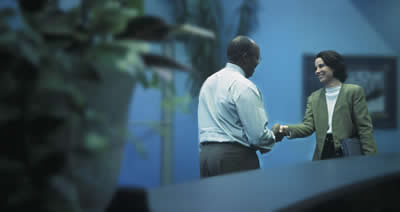Greetings!
Whether you are the executive leader responsible for a learning event or a front-line training specialist this article is for you. Having spent my entire career in a training and development capacity I have seen and delivered exceptional learning experiences, but I have been part of some disastrous ones as well. With some forethought and an overall strategic approach to training, some principles can be followed to dramatically increase the overall effectiveness and value of any learning event you design.
All the best,
|
The Most Common Reasons
Training Programs Fail
We have all been the victim of a bad training event - and for some impossible to understand reason, it is often tolerated. Participants have come to expect that they will have to sit for too long, hear content that is too generic, and listen to speakers who are content experts but not trainers. Organizations tolerate bad training too, spending oodles of money on meetings and events with low expectations and little formal mechanism to measure any change in behavior. The difference between bad training and good training can come down to some simple (but very critical) factors. Here are some of the most common reasons training initiatives fail, and what you can do to avoid them.
Poor needs assessment.
It is critically important for an organization to take the time to identify the real development needs of the workforce instead of turning to one-size-fits all learning events. Consider offering learning tracks based on participant job specialties, years of experience, or open enrollment so participants can choose the session they know would benefit them the most.
Content that is too theoretical.
It is impossible to design an effective learning event from the comfort of your office. Program design is best done from the perspective of real field research, being in the field or office that the participants live in is the only way to truly understand the challenges they face on a daily basis. that the participants live in is the only way to truly understand the challenges they face on a daily basis.
Trainers that want to check the box.
When training is seen as a singular event instead of one facet in an overall organizational development strategy, the learning is often disjointed, random and rarely leads to a direct improvement in performance. Every training event should build on a previous one; should add depth and layers to a developing competency; and should continuously increase in complexity. No post-training reinforcement.
Training only creates awareness. For true improvement to occur, participants need additional reinforcement in a real-life setting. Consider providing participants with follow up options such as enrichment clinics 6 to 9 months after the completion of a program, job shadowing where coaches work onsite to provide participants with coaching and feedback on their application of the principles taught in the course and support in overcoming obstacles that impede performance, weekly or monthly email tips sent on practical ways to apply the learning content in day-to-day interactions.
No measurement of the behavior before the learning event.
It is impossible to know how much a participant is learning, growing or changing without a baseline measurement. Add knowledge surveys, skill evaluations, and self-assessments to your training process so you can better pre- and post-test to measure the results of your learning event.
Lack of professional trainers.
When budgets are tight, it is a common practice for organizations to use subject matter experts as trainers.  Learning specialists must have advanced speaking and facilitation skills that requires specific training. A learning event can become a complete disaster with untrained trainers leading the program. In this case, the delivery of the learning is paramount to the content - hands down.
No adult learning theory.
Too many programs are based on a classroom model of training - the trainer speaks and the participants listen: Death by PowerPoint. Instead, it is critically important for content designers to understand the principals of how adults learn (which is very different than children) and ways to integrate various training methodology into the learning experience. Most adults don't sit in a chair for 8 straight hours with little opportunity for movement or discussion but in most training sessions, that is exactly what is expected.
Vacationer / Prisoner / Learner participants.
Every audience contains three types of participants: the Vacationer who is thrilled to get out of the office or the field for any reason and see a day of training as an escape from reality; the Prisoner who absolutely does not want to be there and sees training as an unwanted interruption from their priorities and resents the trainer for making them be there; and the third type is the Learner who is actively looking for ways to improve him or herself and will seek out takeaways to get value from any learning program. Trainers must prepare for these three types of participants and build in engagement levers for each.
These common mistakes are the main reasons why training initiatives fail in most organizations. They make proving any return-on-investment in a learning event impossible to document and give training events a bad reputation. Most employees dread the idea of being shut into a conference room or hotel ballroom for days and days with little attention being paid to their unique learning needs and preferences. A focused investment in time and effort by the learning and development team can make a very worthwhile impact on any event, not to mention the overall competence of your workforce.
Visit us online at http://performancepointers.wordpress.com for more valuable resources. |